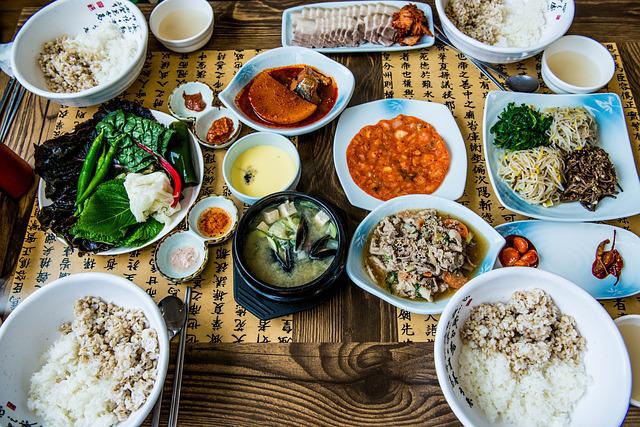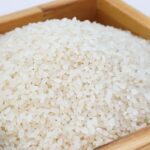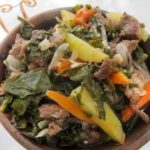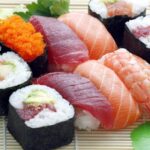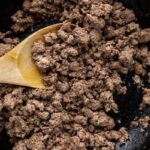Is Korean Food Healthy? Amazing Health Benefits
Is Korean food healthy? The answer is YES.
Considering the ingredients and cooking methods of the traditional Korean diet, it’s generally considered healthy. Because they’re often high in vegetables and cooked without much oil, Korean meals are often lower in calories than traditional American meals
For more information about whether Korean food is healthy, continue reading.
Table of Contents
Korean Food: Why Is It Healthy?
High In Nutrients
Korean cuisine is renowned for utilizing vegetables and greens that are packed with vitamins and nutrients that support healthy living. A wide variety of vegetables, including green onions, spinach, radish, bell peppers, beans and sprouts, cabbage, and many others, are a staple of Korean cuisine. A high protein and vitamin content in the meal lowers the risk of developing cardiovascular or heart-related issues while also assisting in weight maintenance.
Better Digestion
The high fiber content of Korean food aids in bettering digestion and promoting overall digestive health. Probiotics are beneficial bacteria that aid in digestion and break down lactose that are present in fermented foods like Kimchi. Due to its low meat and fat content, Korean food even aids in weight loss. Vegetable soups and low-calorie side dishes are typically served with Korean dishes. Korean cuisine has been found to significantly reduce the symptoms of people with digestive and other intestinal problems. It’s simpler to digest Korean food. Also try switching to Korean cuisine if you want to lose weight.
Use Fresh Vegetables &Seafood
In nations with a plentiful supply of fresh vegetables and seafood, the majority of the world’s healthiest food is prepared. For instance, cooking takes place primarily in a warm environment for Korean cuisine. The use of herbs and spices is minimal, and meals are frequently served without any sauces at all.
The freshness of the food is another aspect to take into account when deciding what the best food in the world is. Fresh food is frequently very nutritous. This is because the flavors are so potent and the nutrients are still present. In comparison to other cuisines, Korean food, for instance, has one of the highest percentages of fresh vegetables. On the other hand, Japanese cuisine is renowned for its extensive use of fish and other seafood as well as other ingredients. Due to its high nutritional value, it is considered one of the best foods in the world.
Low Fat
The absence of fat is the next element that distinguishes Korean cuisine. Almost all Korean dishes have very little to no fat. This is a result of the nation’s extensive consumption of fish and other seafood, both of which are high in omega-3 fatty acids. Due to their ability to lower the risk of heart disease and some types of cancer, these acids are essential to maintaining overall health. See more about Is Ethiopian Food Healthy?
Full Of Antioxidants
The use of antioxidants is also a significant component of this cuisine. Our bodies benefit greatly from the antioxidants found in the numerous fruits and vegetables used in Korean cuisine. When we are exposed to pollution and other toxins in the air, our immune systems release harmful free radicals into the air, which antioxidants help to neutralize. Additionally, to cause serious health issues, free radicals can also harm our arteries.
Stay Active When Eating Korean Food
The amount of movement and activity we engage in each day affects how many calories we consume. TEPA, or the thermal effect of physical activity, is responsible for 15–30% of our daily energy usage.
This indicates that we are in charge of and actively control 15–30% of the energy we use on a daily basis.
As it enables us to eat more and feel great, movement is essential for maintaining a lean body.
Movement is something we can add immediately to speed up fat loss, unlike some factors, like building muscle mass, which can take time and effort to accumulate.
I know it can be challenging to fit exercise into a busy work schedule, but finding some after a long day is definitely doable.
It takes some commitment, but it will unquestionably give you the outcomes you desire.
No matter how healthy the food is, you can expect to consume a lot of calories when you eat something like Korean food.
Even when dieting and exercising, the objective is always to eat more and give the body as much nourishment as we can.
We can do this immediately thanks to activity.
Movement is incredibly helpful and will help you reach your goals, whether it’s 30 minutes of nightly walking or some energizing stretches.
Read about: Is Greek Food Healthy?
Nutrition Information Of Healthy Korean Foods
Due to the ingredients and cooking methods used, each of the popular Korean foods has unique health advantages. Just a few of the most well-known are as follows:
• Although chicken (dak) and pork (dwaej) can also be used to make this grilled dish, the main ingredient in bulgogi is marinated barbecue beef. Since it is grilled over an open flame, its juices are used to cook it rather than fatty oils. Per serving, there are 310 calories.
• Rice, Chinese cabbage, perilla (sesame leaves), other large leafy green vegetables, raw garlic slices, and chili pepper slices are all served with fiery pork known as jeyuk bokkeum. A serving contains 221 calories.
• Bibimbap has slightly more calories than other Korean dishes (560 calories for a single serving), but the seasoned vegetables, tofu, egg, meat, or seafood ensure that the dish still has health benefits.
• Rice cake, fish cakes, garlic, and onions are all combined to make ddukbokki. Very hot and spicy food is extremely low in fat and has many of the advantages of gochujang and chillies. Per serving, there are 378 calories.
Kimchi, a traditional spicy Korean condiment served from morning to night in almost all dishes, must be mentioned in any discussion of the health advantages of Korean food. Garlic, fish paste, and chilli are some of its main ingredients, and they are known for helping the circulatory system. Click here for more information on Kimchi’s health advantages.
It’s not just the food that makes the Korean diet so healthy; South Koreans also get a lot of health benefits from the drinks they consume. Drinks with barley, like Shik-Hye and Barley tea, help the digestive system and are rich in antioxidants like green and ginseng teas.
Does Korean Cuisine Assist With Weight Loss?
Korean cuisine is well-liked because it is savory and nutritious. Naturally, vegetables are a significant source of fiber in Korean cuisine. Diets high in fiber cause fewer cravings for food and less hunger, which may aid in weight loss. The energy of a person is increased, and their skin becomes clearer.
What Do Koreans Say Before Consuming Food?
By saying (jal meokgesseumnida) before consuming food, Koreans make a gesture. The expression expresses gratitude for the cook. Generally speaking, it means, “Thank you for making this; I’m going to have a perfect meal as a result of you.”” One of the best restaurants in the area and the best place to get Korean food is Korean Asian Kitchen. We cook and serve food with love and passion. For our guests’ delectable meals, we prepare food from healthy and fresh ingredients. Ten years of hospitality experience are theirs. Our restaurants serve delicious meals.

How Many Calories You Should Eat In A Day?
The number of calories we consume each day affects how we feel and look, so it’s important to know how many to consume each day.
We either lose weight, maintain our weight, or gain weight based on a concept called energy balance.
Simply put, if we burn more calories each day than we eat, we will lose weight.
We will gain weight if our daily calorie intake exceeds our daily calorie expenditure.
We will maintain our weight if the number of calories we burn each day is equal to the number we take in.
This is how we work out if we are eating for maintenance, a surplus, or a deficit of calories.
So how do we determine how many calories we need to consume each day?
It really comes down to trial and error and being open about how active we are.
Two approaches are effective starting points, but they are unreliable for evaluating the individual.
The first approach is to enter your desired goal (weight gain, weight loss, or maintenance) into an online TDEE (Total Daily Energy Expenditure) calculator.
Another strategy, assuming weight loss is the goal, is to simply multiply your body weight by 12 and see what that results in.
Consider a woman who weighs 130 pounds as an illustration. If you want to lose weight, the formula should produce 1,560 kcals per day.
As it doesn’t take into account activity or lean body mass, this is extremely inaccurate when applied to a particular person.
Therefore, trial and error are required to determine the right number. Let’s assume she consumes 1,560 kcal and maintains her current weight.
She must then reduce her calorie intake until she finds the ideal range.
The key here is to go slowly and steadily, as the body will adapt to low calorie ranges and may eventually go to extremely low calorie ranges.
Simply reduce your calorie intake by 100 per week or two until you lose 1 to 2 pounds.
Make sure to be patient during this process and watch for the results.
Check out this blog where we break it down into 5 easy steps for a more in-depth article on calculating your calories and losing weight in general.
A healthy diet really starts with figuring out your calorie range. With your favorite foods still within your diet’s parameters, this enables you to indulge.
Fitting your food into your daily calorie budget is all about math.
It’s simply more difficult with some foods than others, which is why some are classified as “healthy” and others as “unhealthy.”
Let’s examine why it’s crucial to maintain a regular exercise and workout schedule while also adding muscle to your body.
Final Words
So, is Korean food healthy? Do you get it?
The exquisite flavors and incredible health benefits of Korean cuisine are making it increasingly popular around the world. Because it is rich, spicy, sweet, sour, salty, and bitter, people adore Korean cuisine. Korean cuisine has a number of health advantages in addition to the variety of flavors. The ingredients used in Korean cuisine are exceptionally healthy for humans and lower obesity rates, according to science. The majority of traditional Korean food is composed of vegetables and greens, which aid in the removal of extra fat and a reduction in cholesterol. Additionally, it promotes healthy biological activity and metabolism. The food improves digestion, uses less oil, and leaves your skin with a healthy glow.
If you have any queries, kindly post a comment.
In fact, I’m grateful you read. Have a nice day!

